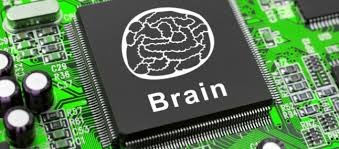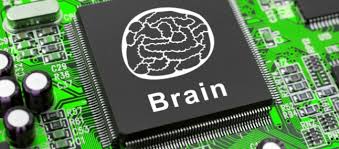
The curtain on homegrown silicon that could define the future of machine learning and artificial intelligence has been being pulled back slowly by Google.
Recently leaving to team up with Chamath Palihapitiya, one of Silicon Valley's most prominent and outspoken young venture investors, on a stealth start-up were some key creators of that project — the Tensor Processing Unit, or TPU.
At least for the time being, Groq Inc. is the name of the company.
No promotional materials or website are present. An incorporation filing in the state of Delaware on Sept. 12 and a couple SEC filings from October and December showing that the company raised $10.3 million are the only things that exists online.
"We're really excited about Groq," Palihapitiya said in an e-mail. "It's too early to talk specifics, but we think what they're building could become a fundamental building block for the next generation of computing."
Palihapitiya, founder of investment firm Social Capital. The listed address is Social Capital's headquarters, Douglas Wightman, an entrepreneur and former engineer at the Google X "moonshot factory" and Jonathan Ross, who helped invent the TPU, were the three principle names that Groq puts out in the SEC documents.
He invested in a team of ex-Googlers who helped build the chip, which he first heard about on an earnings call 2 ½ years ago, Palihapitiya said last month.
"They randomly mentioned that they built their own chip for AI and I thought, 'what is going on here, why is Google competing with Intel?'" Palihapitiya said in an TV interview.
He said that eight of the first 10 people from the TPU team "building a next-generation chip," are now part of the company which we now know is Groq.
A new chip company is something most venture capitalists won't touch even as all start-ups are hard. To get a working prototype can have exorbitant costs for research and development. Then there is the Herculean challenge of finding device makers to take a chance on unproven technology after manufacturing the product.
Also, Google, Apple and Amazon are developing their own silicon and the incumbents — Intel, Qualcomm, and Nvidia — are massive.
Palihapitiya is taking the plunge as crazy as it may be. He said in last month's interview that the next wave of chip innovation "can empower companies like Facebook and Amazon, Tesla, the government to do things with machine learning and computers that nobody could do before."
Ross' LinkedIn page says he is currently "gainfully unemployed" and he had left Google in September. Having left the same month but doesn't say where he went was Wightman's profile. Confirming the funding, Wightman said, "We're still heads down right now."
Just ahead of the company's annual developers conference, Google made its first public pronouncement about the TPU in May with a blog. For things like improving the relevance of search results and the accuracy of its maps, Google had been using the technology internally for over a year, Norm Jouppi, one of the project heads, said. in a product called TensorFlow that lets other companies run machine learning workloads in Google's data centers, it's also part of Google's Cloud Platform.
(Source:www.cnbc.com)
Recently leaving to team up with Chamath Palihapitiya, one of Silicon Valley's most prominent and outspoken young venture investors, on a stealth start-up were some key creators of that project — the Tensor Processing Unit, or TPU.
At least for the time being, Groq Inc. is the name of the company.
No promotional materials or website are present. An incorporation filing in the state of Delaware on Sept. 12 and a couple SEC filings from October and December showing that the company raised $10.3 million are the only things that exists online.
"We're really excited about Groq," Palihapitiya said in an e-mail. "It's too early to talk specifics, but we think what they're building could become a fundamental building block for the next generation of computing."
Palihapitiya, founder of investment firm Social Capital. The listed address is Social Capital's headquarters, Douglas Wightman, an entrepreneur and former engineer at the Google X "moonshot factory" and Jonathan Ross, who helped invent the TPU, were the three principle names that Groq puts out in the SEC documents.
He invested in a team of ex-Googlers who helped build the chip, which he first heard about on an earnings call 2 ½ years ago, Palihapitiya said last month.
"They randomly mentioned that they built their own chip for AI and I thought, 'what is going on here, why is Google competing with Intel?'" Palihapitiya said in an TV interview.
He said that eight of the first 10 people from the TPU team "building a next-generation chip," are now part of the company which we now know is Groq.
A new chip company is something most venture capitalists won't touch even as all start-ups are hard. To get a working prototype can have exorbitant costs for research and development. Then there is the Herculean challenge of finding device makers to take a chance on unproven technology after manufacturing the product.
Also, Google, Apple and Amazon are developing their own silicon and the incumbents — Intel, Qualcomm, and Nvidia — are massive.
Palihapitiya is taking the plunge as crazy as it may be. He said in last month's interview that the next wave of chip innovation "can empower companies like Facebook and Amazon, Tesla, the government to do things with machine learning and computers that nobody could do before."
Ross' LinkedIn page says he is currently "gainfully unemployed" and he had left Google in September. Having left the same month but doesn't say where he went was Wightman's profile. Confirming the funding, Wightman said, "We're still heads down right now."
Just ahead of the company's annual developers conference, Google made its first public pronouncement about the TPU in May with a blog. For things like improving the relevance of search results and the accuracy of its maps, Google had been using the technology internally for over a year, Norm Jouppi, one of the project heads, said. in a product called TensorFlow that lets other companies run machine learning workloads in Google's data centers, it's also part of Google's Cloud Platform.
(Source:www.cnbc.com)














